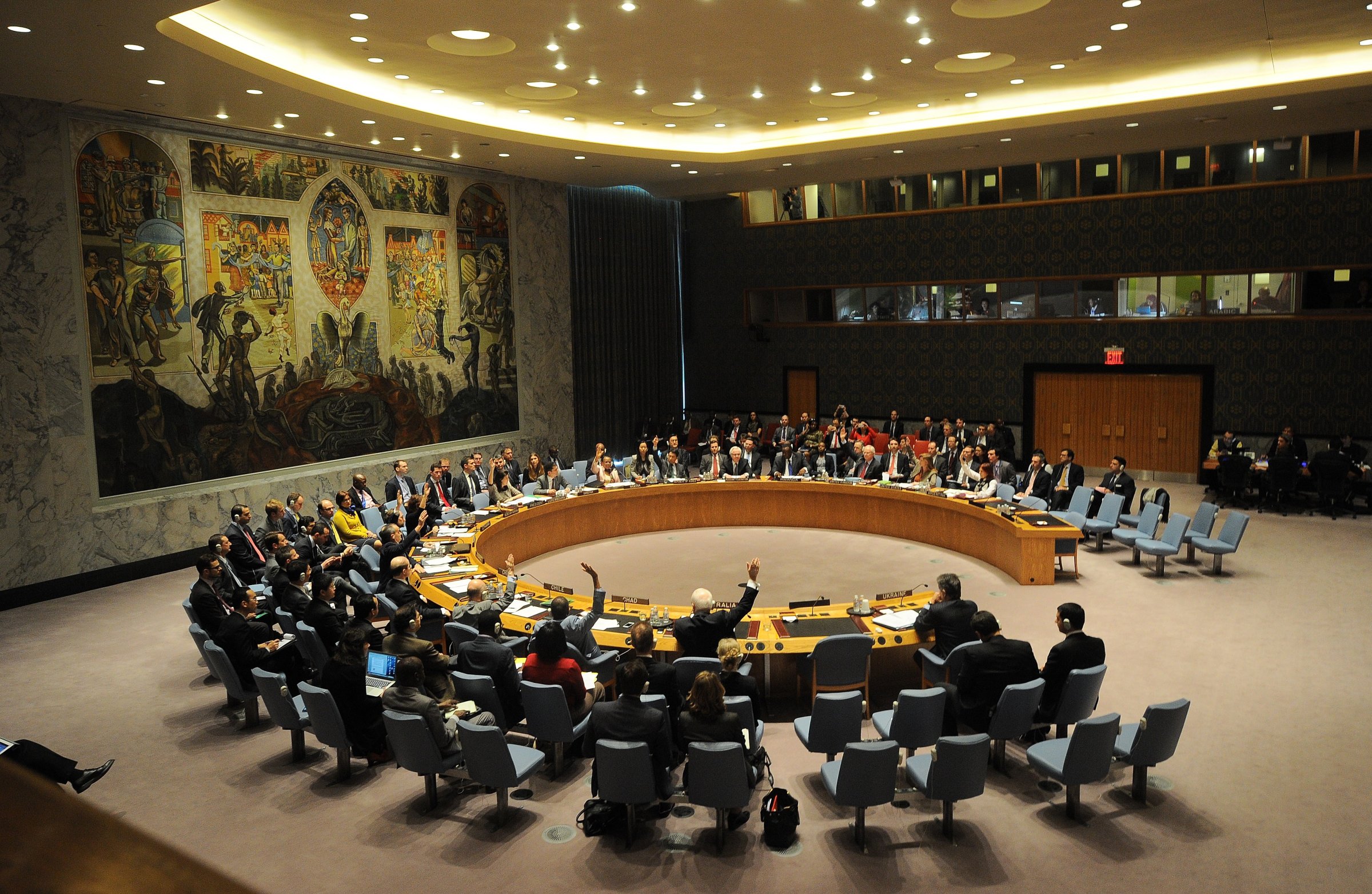
At happy hour last Friday in the North Delegates’ Lounge at U.N. headquarters in New York City, the talk centered on a shocking international incident. It had nothing to do with Iraq, nor with Ukraine, but with the World Cup, specifically the Netherlands’ 5-1 romp over Spain, the defending champions, in their first-round match earlier that afternoon. It represented the Spaniards’ worst loss in the tournament in 64 years.
The U.N. has gone all out for the world’s biggest sporting event. After you have been cleared by three layers of security and approach the lounge — a soaring space at the north end of the Conference Building in Le Corbusier and Oscar Niemeyer’s 63-year-old complex, with floor-to-ceiling windows that overlook the East River — you pass by a display of the jerseys of each of the 32 countries that are competing. Upon entering, you find a pair of freestanding large-screen televisions, flanked by official World Cup signage and faced by several rows of chairs and sofas that have been angled for easy viewing.
By 6 p.m. last Friday all the seats were filled, because Chile was about to begin its opening match against Australia. It wasn’t long before a loud whoop rose up from the Chilean delegation, and then another. Chile scored a goal in the 12th minute, and a second in the 14th. “Chileans are so annoying,” someone said. “They’re on the Security Council, and they’re contrarian for no good reason.”
Soon, several members of the Spanish delegation filed in, hoping to drown their sorrows in cheap drinks. During matches, the bar is selling bottles of imported beer for $4 and tall plastic cups of house wine for $5, each discounted a dollar from the regular price. That afternoon’s viewing party at the Spanish mission, on East 47th Street, had started well enough — Spain had gone ahead on a Xabi Alonso penalty kick — but turned somber after Robin van Persie and the Oranje started scoring and refused to stop.
Even so, at least one curly-haired Spanish delegate was philosophical about the historic defeat. “Football is football, and it was a festival of counterattacking by Holland,” he said. “We always lose the first game so the world thinks we are weak.” In the last World Cup, in 2010 in South Africa, Spain dropped its opener to Switzerland before winning its next six matches.
It was suggested that Spain’s side likes to play possum. “What is this?” the Spanish delegate asked. The etymology of the American idiom was explained. “Yes, it is exactly this,” he said.
Back toward the bar, the chatter concerned not just Spain’s defeat but the usual diplomatic gossip and stories, like the time that Libyan dictator Muammar Gaddafi wanted to construct a large tent in Central Park to house him during the General Assembly in 2009 (his request was denied). One man with glasses and close-cropped hair stood alone, looking worried. “That’s an Iraqi delegate,” someone said. “His country has fallen apart in the last week.”
“It is a very bad situation,” the Iraqi said. “My family is in Baghdad, but they are coming to New York next week.”
“Inshallah,” an American delegate said.
“Don’t say that!” the Iraqi said. “I have a friend in the Korean embassy in Baghdad, and he says to me that they have not had electricity in weeks. ‘Soon it will be back on, inshallah,’ I say. ‘He tells me, ‘I know what that means. That means that it will never happen.’”
After two hours, the game was over. Chile had won comfortably, by the score of three goals to one, and drinks were back to their regular price. The delegates began to filter out, many of them headed for dinner or a party in Brooklyn. The Spanish delegate, however, was still firmly focused on the events from earlier that afternoon.
“The opossum strategy,” he said, pointing his finger in the air. “I like this very much.”
More Must-Reads From TIME
- The 100 Most Influential People of 2024
- The Revolution of Yulia Navalnaya
- 6 Compliments That Land Every Time
- What's the Deal With the Bitcoin Halving?
- If You're Dating Right Now , You're Brave: Column
- The AI That Could Heal a Divided Internet
- Fallout Is a Brilliant Model for the Future of Video Game Adaptations
- Want Weekly Recs on What to Watch, Read, and More? Sign Up for Worth Your Time
Contact us at letters@time.com